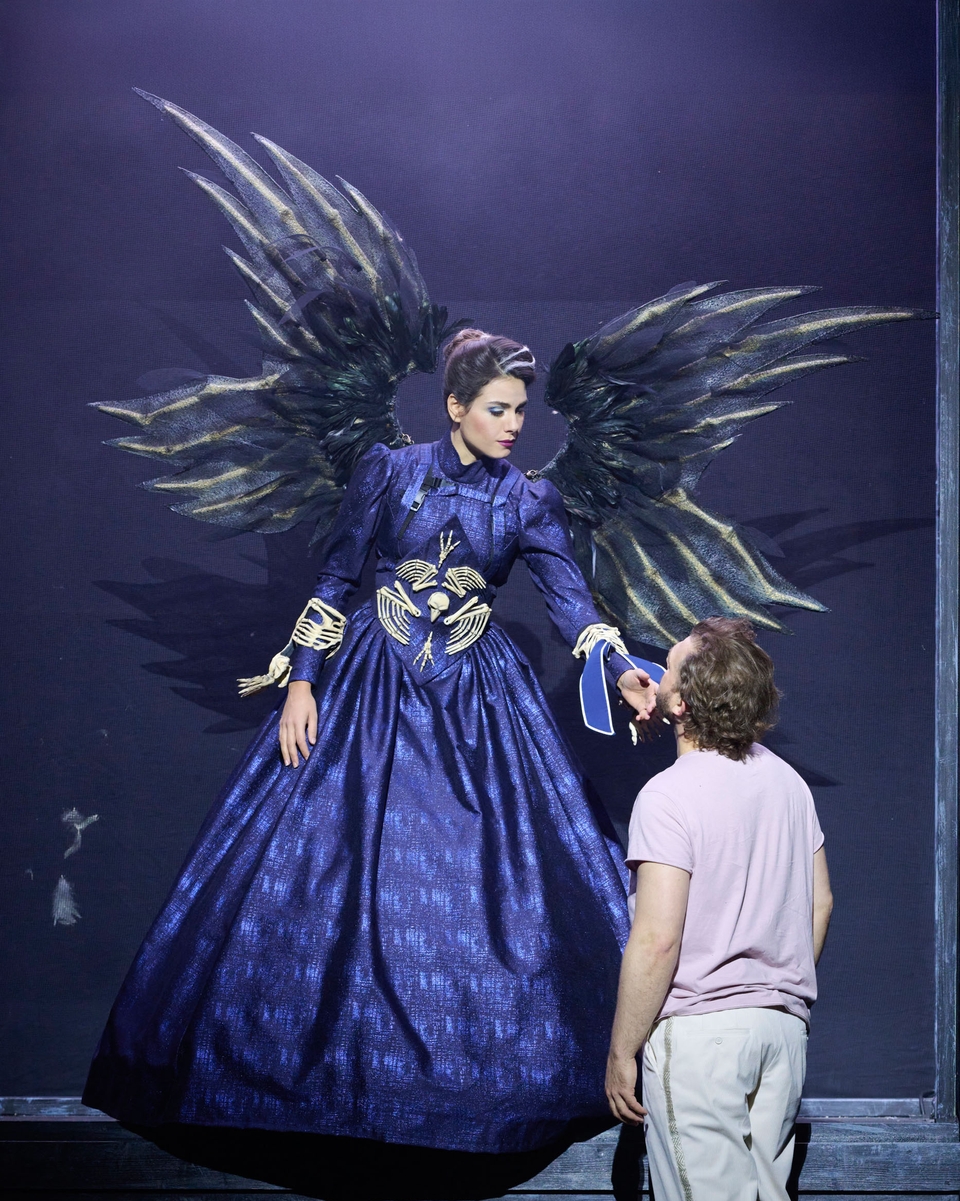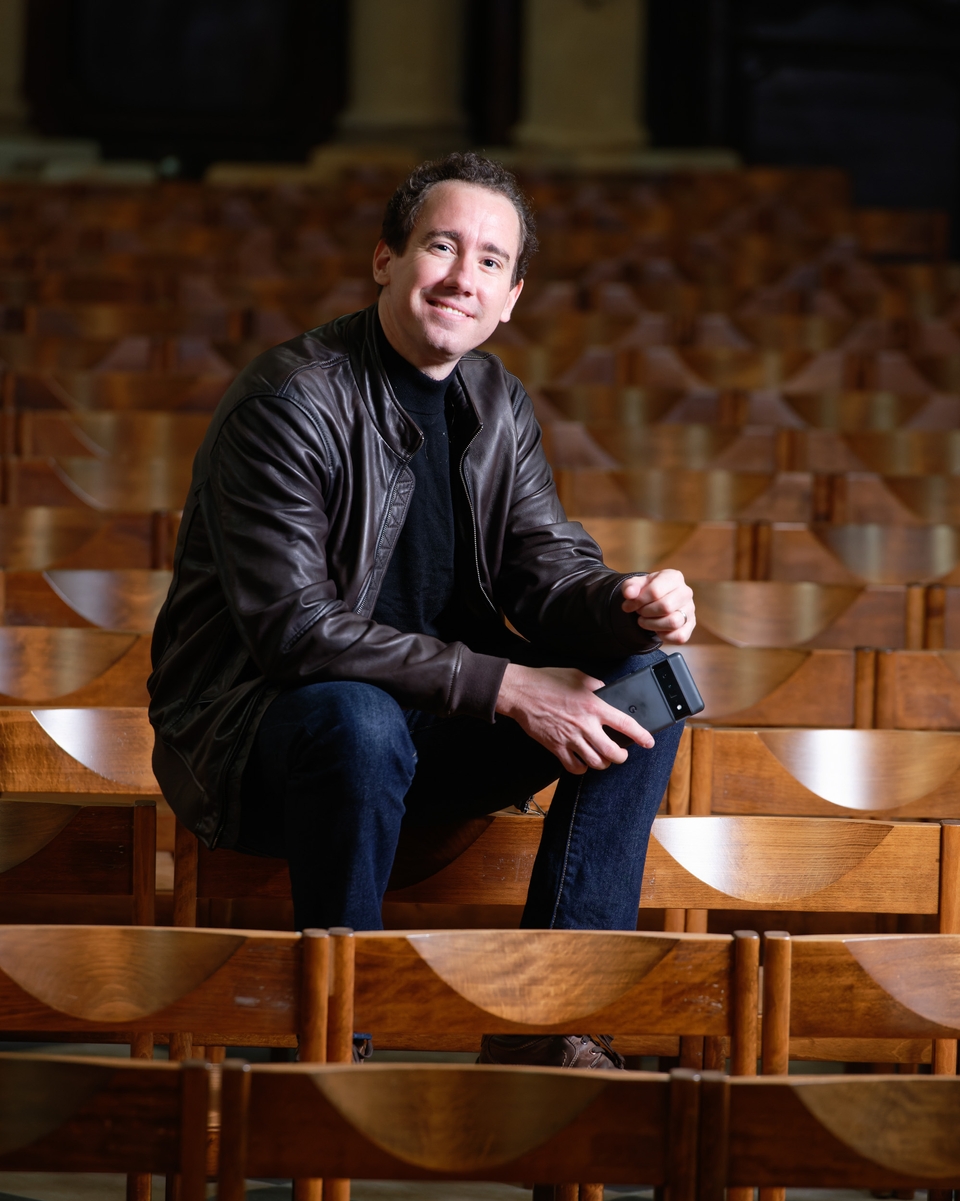The message of the Zauberflöte
Feature |
The French tenor Cyrille Dubois has previously appeared in two roles at the Vienna State Opera: as Ernesto in Donizetti's Don Pasquale and as Telemaco in Monteverdi's Il ritorno d'Ulisse in patria. Now he is devoting himself to his first Viennese Mozart role: Tamino in the brand new production of Zauberflöte. In this interview, he tells us how he got into music as a child, what he would advise cultural policy-makers to do and why he prefers being Tamino to Papageno.
We keep complaining in Austria that music lessons and the importance of art in schools are declining. What is the situation in France in this respect?
Cyrille Dubois: I'm afraid it's even worse. In my opinion, there is an unbroken tradition in Austria - think of the choirboys, for example - that goes back a long way. There was a turning point here, namely the French Revolution, which regarded particularly specialized schools as something elitist and closed them down without further ado. That had an impact... Today, there is simply not enough time for art in public schools. The offer in elementary school: little. In secondary schools: even less. If you are interested in art, it is a matter of your own volition. But the problem is a social one: everything has to be quick and easy. There is no demand for in-depth discussion.
If you were an advisor to the Minister of Culture, what would you suggest?
Cyrille Dubois: Simply that there is more opportunity to clear your head and discover things. Things that you might not know from home. For me, it's not just about music, it's about all forms of art. Visiting an exhibition once. Experiencing an orchestra. Open your eyes! I know that costs money. But I think that financial resources invested in art are put to good use. If you like: An investment in the future. You plant seeds and in 20, 25 years something will blossom. Bad politics, however, only ever looks at the foreseeable short-term success.
When was the seed planted for you? And why? Do you come from a family of musicians?
Cyrille Dubois: No, my father played the guitar, there was music around me, but it wasn't a family of classical musicians. But... I sang all day from an early age. My parents wanted to encourage this and made me attend a choir. The director of the choir was a friend of the family and he once said: "That boy has something special". That's how it started... So I sang in the choir and later attended the conservatory in Rennes. Of course, I also wanted to try out a "normal" life, so I studied science and sang just for fun - and to earn money. In the Rennes opera choir, for example. That was cool! Well, and at some point I felt: Hm, maybe it's music after all! So I went to the conservatory in Paris, joined the Young Artists Program at the Paris Opera and suddenly I was in the thick of it.

Serena Sáenz as Queen of the Night & Julian Prégardien as Tamino.
In the current series, Cyrille Dubois sings Tamino.
In the midst of it all... what is a singer today? Do you feel like a "star"? Or are you simply someone who brings happiness?
Cyrille Dubois: I think there are very few real superstars in the opera business. And even these, when they are outside an opera house and walking on the street, are not recognized by most people. But that's not the point! What is our aim? I think we bring music to people - and therefore joy. That's the main thing. We bring them something that they don't hear in everyday life. Great masterpieces that have stood the test of time for centuries. Pieces that are worth playing over and over again. That have a message. With much of what you hear on the radio today, you ask yourself: will it still be relevant in 200 years' time? The opera repertoire has long since proved this. Music always brings me happiness. And if what I like is also liked by the audience, then that's the best gift for me!
To what extent has the profession changed in recent years? What has the enormous wealth and availability of recordings - keyword YouTube - brought?
Cyrille Dubois: I think that today everything is a bit fixed due to these countless recordings. It's not easy as a young singer, you constantly hear: "Have you heard this or that recording?" Or: "But he or she did it this way and that way". I know that there used to be fantastic artists who created legendary interpretations. But let's not forget about today. The interesting question is: how do we do it now? How can we incorporate all that we have learned, all that we have experienced - without clinging to yesterday? The circumstances have certainly changed. The scenic is certainly more important today than it was a few decades ago, the awareness of the connection between singing and performance has increased. It's about the play and the music. So I don't just want to be completely absorbed in a character on stage vocally, I also want to fill it out dramatically. In Tamino, I achieve this to such an extent that I have tears in my eyes during the auditions.
Because you mentioned a message... What is the message of Die Zauberflöte for you?
Cyrille Dubois: Phew, a difficult question. It's about so much. It's about the fantastic, but of course it's also about the human being, the value of the human, it's about what defines us, it's about empathy and wisdom, about opening the mind, but also about becoming aware of nature, understanding that there are things that reach beyond us and our everyday lives. That we can rise above our circumstances. Another aspect is that the diversity of all of us is shown - just think of Papageno and Tamino. All this in a world of musical beauty, and finally: that you don't just get rewards. That you have to make an effort, that there are tests, that sometimes you have to fight for something.
"I think Tamino is the person we would like to be. But very often we are also Papageno..."
Now you are singing Tamino, the prince. Is that a character you like? You mentioned Papageno: isn't that a character that appeals to many of us more directly?
Cyrille Dubois: I think both are an allegory. The prince and the nature boy. They both represent something, and we all have elements of both in us. Frightfulness, loyalty, wit, steadfastness, poise and sometimes a bit of a fib. The two keep the balance and remind us that our lives take place between these poles. Sometimes we are more one, sometimes the other. But they are always both there, and with these characters we can deal with so many questions in our lives. I think Tamino is the person we would like to be. But very often we are also Papageno..
Tamino undergoes a development as a human being. What does he learn on his journey?
Cyrille Dubois: That he has to wrestle with resistance. That if you really want something, you have to stand up for it, but at the same time you can be full of confidence. Even when things are threatening and don't look good. Basically, Die Zauberflöte is a parable that touches us all today: Even when things are going really badly, they can turn out well again. And we can believe and trust in that.
You are a French tenor. What does that mean for Mozart interpretation? Is there a "French" Mozart style? Or have the different schools long since given way to an international language of interpretation?
Cyrille Dubois: I grew up with the French language, literature, history, performance tradition and so on, I have been surrounded by all of this since my earliest childhood - and I sing a lot of French repertoire. But it's all the more exciting for me when I experience someone who has a different background and therefore a completely different perspective on these works. In other words, looking at the pieces that are so familiar to me with fresh eyes. I think we all have great respect for the works and try to translate them as well as possible, especially in terms of language. A Tamino in German in Vienna - that's a challenge for me, of course. But we all have our own backgrounds and always bring something new to the table. This is also the case for me: I come from French music and so perhaps one or two colors will be a little different.
You also sang other important Mozart roles, Belmonte in the Abduction and Ferrando in Così fan tutte. How do these roles compare in purely vocal terms?
Cyrille Dubois: In Mozart, there are the "young" roles, i.e. Ferrando, Idamante - if sung by a tenor - Belmonte and Tamino, and the more dramatic ones, such as Idomeneo or Tito. Tamino is in the transitional area: still young, but already with greater dramatic potential. As my voice is naturally changing and slowly moving towards the second group, he is therefore ideal. It would be too early for Idomeneo - but Tamino is just right!
